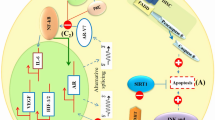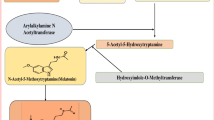Abstract
Melatonin (MLT) is the main hormone released from the pineal gland and has proved to have physiological antitumor activity. MLT has been shown to exert anticancer activity through several biological mechanisms: antiproliferative action, stimulation of anticancer immunity, modulation of oncogene expression, and anti-inflammatory, anti-oxidant and anti-angiogenic effects. Several experimental studies have shown that MLT may inhibit cancer cell growth, and preliminary clinical studies seem to confirm its anticancer property in humans. In addition, MLT may have other biological effects, which could be useful in the palliative therapy of cancer, namely anticachectic, anti-asthenic and thrombopoietic activities. On this basis, the present clinical investigation was performed in an attempt at better definition of the therapeutic properties of MLT in human neoplasms. In a first clinical study, we evaluated the effects of MLT in a group of 1,440 patients with untreatable advanced solid tumors, who received supportive care alone or supportive care plus MLT. In a second study, we evaluated the influence of MLT on the efficacy and toxicity of chemotherapy in a group of 200 metastatic patients with chemotherapy-resistant tumor histotype, who were randomized to receive chemotherapy alone or chemotherapy plus MLT. In both studies, MLT was given orally at 20 mg/day during the dark period of the day. The frequency of cachexia, asthenia, thrombocytopenia and lymphocytopenia was significantly lower in patients treated with MLT than in those who received supportive care alone. Moreover, the percentage of patients with disease stabilization and the percentage 1-year survival were both significantly higher in patients concomitantly treated with MLT than in those treated with supportive care alone. The objective tumor response rate was significantly higher in patients treated with chemotherapy plus MLT than in those treated with chemotherapy alone. Moreover, MLT induced a significant decline in the frequency of chemotherapy-induced asthenia, thrombocytopenia, stomatitis, cardiotoxicity and neurotoxicity. These clinical results demonstrate that the pineal hormone MLT may be successfully administered in medical oncology in the supportive care of untreatable advanced cancer patients and for the prevention of chemotherapy-induced toxicity.
Similar content being viewed by others
Author information
Authors and Affiliations
Corresponding author
Additional information
Electronic Publication
Rights and permissions
About this article
Cite this article
Lissoni, P. Is there a role for melatonin in supportive care?. Support Care Cancer 10, 110–116 (2002). https://doi.org/10.1007/s005200100281
Published:
Issue Date:
DOI: https://doi.org/10.1007/s005200100281




